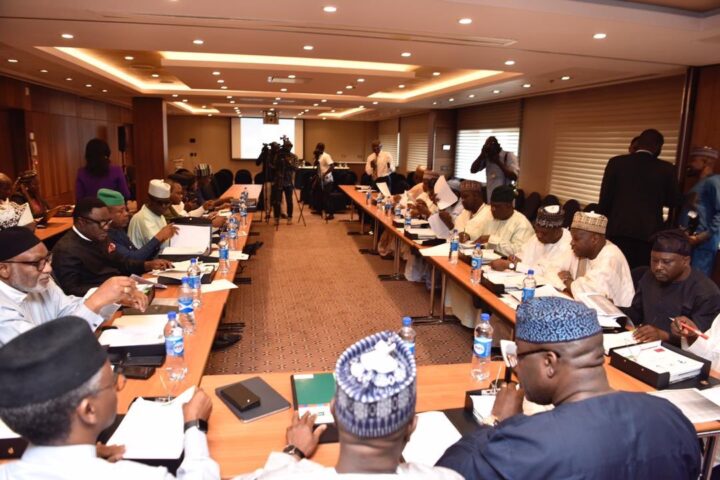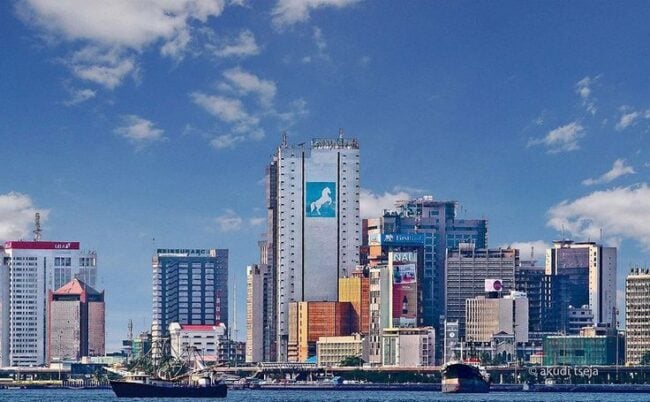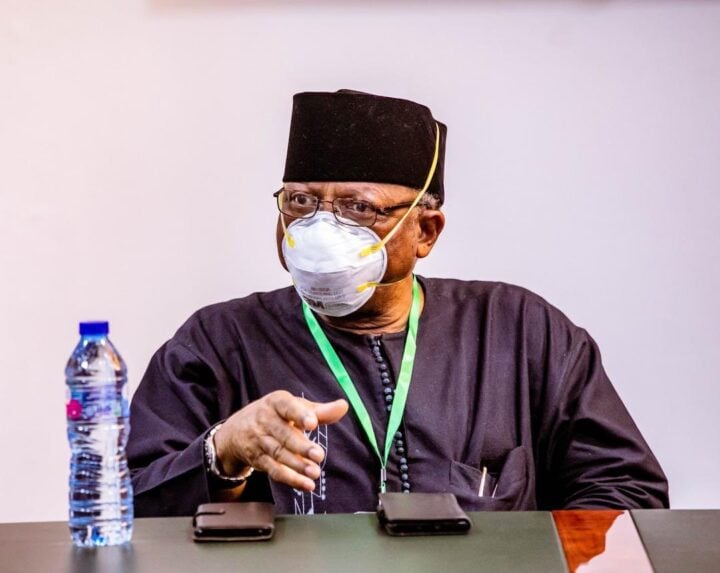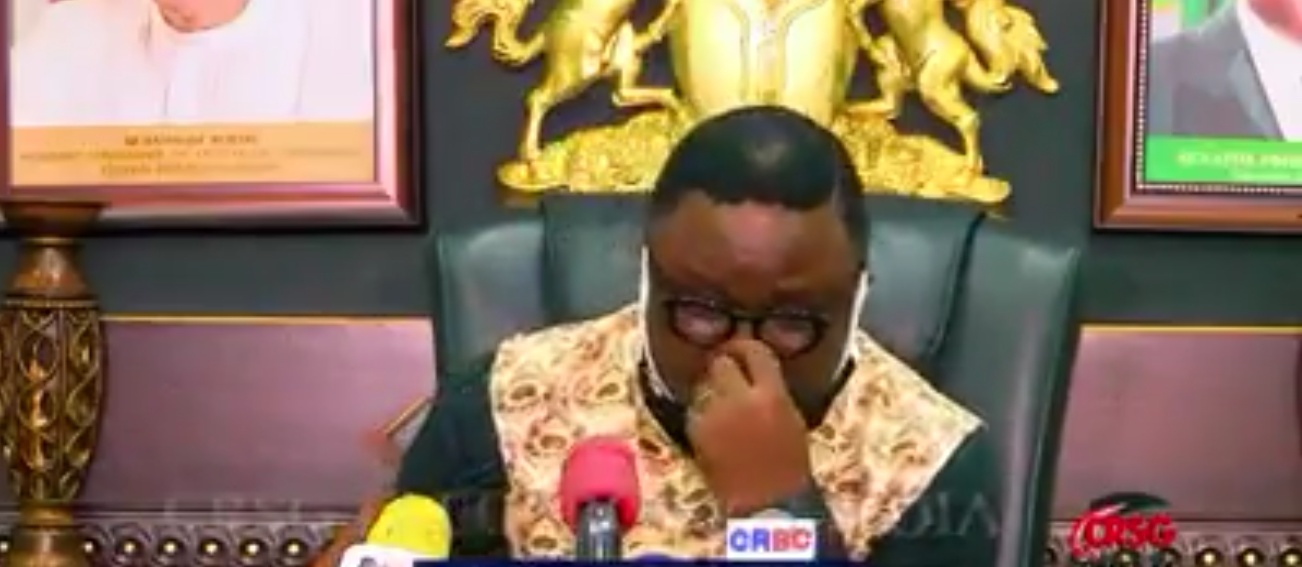In moments of ruins and comprehensive catastrophe, certain images emerge to flash some hope of man’s capacity to resist turbulence and shine forth encouraging illuminations for humanity. In such surreal moments that people go for easy picks and acquiesce to defeat, some run the race of life to overcome adversity and demonstrate human resilience.
During the Vietnam War, the picture of a young girl running down the road completely naked and shrieking in pain after napalm attack, was the most iconic picture of that era. Real name, Phan Kim Phuc, she became known as the Napalm Girl, her identity defined by the terrible circumstances of that era. The bomb burned straight to her bones but she thought she could remove her skin and stopped the fire. She did not stay down and surrender to death. She ran. Today she gives a picture of hope as an author and UNESCO Goodwill Ambassador.
How will the story of two of our governors be told someday long after this nightmare is over, after another dark moment in human history? Are we ever as a people going to sit down to look at acts of villainy and heroism? The story of our country has not particularly been a very inspiring one; like a people taking a race forward but looking back, away from the finishing line; a people walking in total illogic to Ola Rotimi’s Hopes of the Living Dead which the leadership of this nation spurned in 1980 and has hardly done anything ever since to advance our existence beyond the famed playwright’s metaphorical expression of hope. Ours is a story of failed hope and deferred expectations superintended by Fela’s Vagabonds in power. The victory song is written by individual acts of heroism, people who subordinate the self to the benefit and triumph of the majority.
Like the story of the two governors who recently broke ranks with the gang of governors in our interesting federacy to weave a tantalizing story for the telecommunications industry. You know the story of the times, a period people live on hope and have ashes in the mouth as reality. The COVID-19 is a global pandemic that has hardly accommodated human efforts and capacity for resistance. The economies of the world have gone down, and hopes of speedy recovery are in perpetual recession. This is the time that every kobo counts and every source of revenue is revered. This is the time the two governors have decided to make their audacious moves.
Dr Kayode Fayemi and Senator Hope Uzodinma of Ekiti State and Imo State, respectively,decided to reduce the cost of fibre installation usually referred to as right of way (RoW) within the same period from N4,500 per metre to N145 metre per metre.
Advertisement
First, it was Dr Fayemi who as leader of the Nigeria Governors Forum (NGF) provided the kind of leadership that is miserably absent in this part of the world. His Executive Order No. 007 of 2020, titled: Right of Way Charges on Telecommunications Infrastructure, states in part: “The government of Ekiti State is desirous of providing all those living in Ekiti State, especially rural communities with access to reliable, affordable broadband connectivity.”
The governor projects that the Executive Order would attract new businesses, grow investment confidence in the State, and unleash new employment opportunities.
Never to be outdone, Senator Uzodinman of Imo State quickly followed on the heels of his Ekiti counterpart by signing Executive Order No. 002 of 2020 for his State. He hopes the Order would show a demonstrated readiness by his State to woo telecommunications operators to invest on broadband infrastructure.
Advertisement
Commitment to the people is what good politics is all about, really. The two governors are in a race of their own to provide modern telecommunications infrastructure for their States while other governors will now be forced to do catch up. In fact some of these governors recently increased RoW rates. But you need to understand the set up before you begin to apportion blames.
Globally the telecommunications industry is seen by governments as one sector that can provide low hanging revenue opportunities for government operations. The situation is worse in developing countries like Nigeria where the Federal, State and Local councils could pursue different charges even when taxes had already been made to the Federation account by the operators.
For instance, the telecommunications sector was deregulated in 1992. However, the industry also suffered repressive military encumbrances until the Obasanjo administration, in the year 2000, recalibrated the sector with the appointment of Engr Ernest Ndukwe as the Executive Vice Chairman of the NCC; his blueprint opened up the sector. Unfortunately new challenges emerged. RoW for cable laying and permits for base station buildout became problems from day one. And even Nasir el Rufai, a very forward looking Minster of the Federal Capital Territory was caught in the obstinate resistance for telecommunications service rollout with the tepid explanation that base stations were not captured in the Abuja master plan.
Fast forward. el-Rufai is the governor of Kaduna State. Although he has always played in the telecoms sector and was unfortunately the final undertaker of the defunct NITEL, the same el Rufai has completely waived payments for RoW in what may prove a master stoke in pulling telecoms service providers and investors to his State. That is the way to go.
Advertisement
History is in the making in Nigeria. Each successive administration of the NCC, beginning from Ndukwe, to Engr Eugene Juwah,and now Prof Umar Garba Danbatta, has put up a fight with the various government authorities to support the telecoms industry rollout, resulting in the agreement in 2013, by the National Economic Council (NEC), to peg rates at N145.
In fairness, Dr Isa Pantami, Minister of Communications and Digital Economy, apart from his annoying and intrusive petulance with a beleaguered regulatory authority, has been most bullish in using his ministerial powers to pressure the governors into doing the needful for the industry. It is to his credit that he met a fight and has resolved to pursue it to a considerable conclusion.
These governors are changing the telecoms ecosystem. No matter how small or remote their States may be, operators will go there, new businesses will follow them, the life of the people will be altered and there will be a new language of social interaction. These States will be integrated to the rest of the world and, well primed, they will contribute skills and services to the global economy and open their markets to a new world.
Going forward, the story of the country may not be that of federating States who run to Abuja in a monthly ritual to collect allocation from the Federation account but the story of governors who changed the fortunes of their States by breaking from the band of economically unreasonable lot. Like the Napalm Girl, who defeated the fire of napalm, the governors will be praised for breaking the blind intransigence of their colleagues and for exposing their people to the beauty and possibilities of a new world.
Advertisement
Okoh Aihe writes from Abuja
Advertisement
Views expressed by contributors are strictly personal and not of TheCable.
Add a comment







